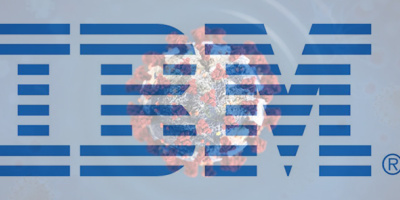IT employees must develop multiple strategies to protect their jobs during this economic upheaval.
Cathie Black--media mogul, president of Hearst Magazines, and author of the book Basic Black: The Essential Guide for Getting Ahead at Work (and in Life)--was interviewed recently on NBC's Weekend Today (remember, folks, I only watch the best on TV; I am also a devotee of South Park and Family Guy) for tips on how to avoid losing one's job during the economic crisis. "Be essential," was her reply.
Also, be indispensible and/or irreplaceable.
Recall the old adage that everyone can be replaced? Well, it's time to start thinking about what skills, talents, responsibilities, relationships, qualifications, experience, and, yes, metrics make you essential, indispensible, and irreplaceable.
Back to Basics
During her interview, Black cited some basic tips: Come in early; stay late. Be the model corporate citizen: ask not what your company can do for you, but what you can (and should) do for your company. It is imperative to keep your finger on the pulse of all company projects (not just IT projects): which ones are likely to continue getting the green light and which ones are likely to be canceled. If you are assigned full-time to a project that may get the ax, it is time to enlighten not only the supervisor or manager to whom you directly report, but other managers (in other lines of business) regarding the value you can bring to the green-light projects.
If you don't already have it, request a copy of your job description and then compare it to your updated resume (I know; it's on your to-do list) to determine if you have skills or experience of which your manager, your department, and/or other departments are unaware. Employees who are actively seeking to utilize all their talents, who understand not only their jobs, but also the various direct and dotted-line relationships and how they fit into the big picture are likely to be valued by the company and more likely to stay in their jobs. Moreover, be sure to keep a folder of all your performance reviews. In the event you are either reduced to part time and/or let go, you need to have firm footing upon which to negotiate.
Cross-training always gets a lot of hype, but it is essential to your corporate survival to be as fluent as possible in, for example, more than one programming language (or eager to learn), to be able to work with DB2 and SQL Server as if they were interchangeable, to understand the finer points of security and compliance, especially in your industry vertical, and to ensure that you are highly qualified to do more than what your job description implies. There are plenty of gratis industry magazines out there. Subscribe to and read as many as you can.
Returning to school to finish your undergraduate degree or obtain a graduate degree in a complementary area of expertise is another suggestion, but don't give up your day job. The fact is, in order to resuscitate the depressed (and depressing) economy, banks will have to continue making loans. This is the stuff (read: "pixie dust") upon which our economy is built. And while banks--especially after the recent debacle--are less likely to make loans based on criteria such as "are you breathing" or "do you have a phone number," loan programs such as the Stafford Federal Student Loan Program are still open for business to qualified candidates.
The Worst-Case Scenario
If I may digress for a moment, it is paramount that you are able to negotiate clearly and effectively in the event your hours are cut or you are in danger of losing your job. This means having copies of all awards, performance reviews (hopefully, they demonstrate that you continually exceeded expectations), certificates earned at your present job, an updated resume, etc. If you are downgraded to part-time status or fired, first you need to understand why. Then you must be able to shrewdly negotiate to keep certain benefits (if the former applies) or get a decent severance package (if the latter applies).
Be prepared.
Don't allow yourself to be blindsided or pressured into making an on-the-spot decision, unless, of course, security has been called to escort you from your desk. (In that case, there are other avenues of recourse.) Before you get downgraded to part-time or discover you are being let go at a later date, remember to tell HR or your manager that, before you sign anything or accept anything, you would like some time to review the new offer or severance letter at home (not at a bar). Then you should take the time to discuss it with your spouse, your partner, your parents, your lawyer, a trusted friend, or your dog. This gives you time to prepare your case. For example, suppose your company wants to reduce your hours to part-time and revoke all benefits. If you have been a valued employee--and can prove it--succinctly state on paper, in person, or both that you will take the reduction in hours but that you believe that your impeccable track record should entitle you to keep some benefits (such as medical insurance).
And Now for Something a Bit Different
There are also other innovative strategies you can employ to demonstrate your indispensability to your company. The following is a short list at which I arrived when I put on my thinking cap:
•· Use metrics--First, understand what your total cost to your company is. If your tenure with the company is under one year, you need to include in your calculation recruitment fee (if any), yearly salary, bonuses or other allowances you may have received, and your benefits (roughly 33 percent of your yearly salary). The longer your tenure, the more valuable you become to your company because of the intellectual property you have acquired along with experience and seniority. Moreover, the type of job you have and the way it fits in with the company's mission can determine if you still have a job after a reorganization. For example, a data architect is a key position because actionable information is crucial to a company's ongoing viability. Likewise, a network specialist is integral to keeping everyone up and running.
To formulate metrics, you need to examine the projects upon which you have worked and then analyze what their realistic return on investment (ROI) has been to the company. You don't need to calculate this down to the last penny; some high-level number crunching works just as well.
Let's take a simple example. Say that as a direct result of your ability to better automate shipping at one distribution facility, your company reduced product ship time from 10 to five days. This should reduce the time payment is received as well as reduce the cost of maintaining inventory. If you have a reasonable idea of the cost of the product (to your company) as well as the wholesale price paid by your distributors, you can reasonably calculate the monetary advantage to your company's bottom line.
•· Map skills to critical success factors--If you don't already know, you should find out what are your corporate culture values. Obviously, it will be a healthy bottom line, but how the company prefers to achieve it is key. Is your company conservative in how it does business, does it reward risk-takers, does it value a team vs. individual approach, etc.? By understanding the company's modus operandi and the factors it deems critical for success, you can begin to determine how your skills, or lack thereof, fit into the big picture and figure the appropriate adjustments. For example, if your company values and rewards team efforts over individual accomplishments, determine how you can become part of a team, especially if you tend to be a lone wolf.
•· Know thy business--I know I sound like a broken record (you do remember records?), and I have written about this for over 20 years. Back in the day, IT people were considered to not have good communication skills (read that as they could not write a comprehensible sentence). I learned early that being able to write could tip the scale in my favor. After the advent of personal productivity skills, it became all the rage if you could communicate effectively via PowerPoint or if you were a wiz at Excel.
Times have changed, and today it is paramount that you understand the business you are in. Knowing the technology and having two bucks will get you a ride on the New York subway. Period. If you understand how the business operates, then you can work to improve it and, in so doing, become essential to it.
•· Brand yourself--In her article "CIOs must learn to brand themselves despite stereotypes," Linda Tucci, senior news writer at SearchCIO.com, provides excellent advice to CIOs, which can extend to every employee in the organization. Tucci quotes Atefeh Riazi, CIO at New York-based ad agency Ogilvy & Mather Worldwide Inc. Riazi asked audience members to think of their workplace selves like a brand. Not just about selling soap or salad dressing, branding is about the "core of who we are and the experience we have with others."
A novel idea, I thought. We all understand brand names. Many people tend to buy brand-name products versus off-brands or generics. Are you a generic programmer/analyst or business analyst or are you a Visual Basic programmer/analyst or a finance business analyst? Branding, where appropriate, helps you to stand out in a crowd and maybe be recognized for the great work you do.
Bottom Line
Even if your job appears to be secure or you are in a secure industry, it never hurts to have an updated resume, to keep all your professional currency in an accessible folder, and to be continually looking at how to increase your productivity and your knowledge and make positive contributions to your company.
One last tip: don't overlook your hobbies and your volunteer work. They are untapped resources when it comes to getting a job and keeping one. An employer who knows that you volunteer at a soup kitchen knows more about your character than the fact that you have 10 years experience in SQL.






















 More than ever, there is a demand for IT to deliver innovation. Your IBM i has been an essential part of your business operations for years. However, your organization may struggle to maintain the current system and implement new projects. The thousands of customers we've worked with and surveyed state that expectations regarding the digital footprint and vision of the company are not aligned with the current IT environment.
More than ever, there is a demand for IT to deliver innovation. Your IBM i has been an essential part of your business operations for years. However, your organization may struggle to maintain the current system and implement new projects. The thousands of customers we've worked with and surveyed state that expectations regarding the digital footprint and vision of the company are not aligned with the current IT environment. TRY the one package that solves all your document design and printing challenges on all your platforms. Produce bar code labels, electronic forms, ad hoc reports, and RFID tags – without programming! MarkMagic is the only document design and print solution that combines report writing, WYSIWYG label and forms design, and conditional printing in one integrated product. Make sure your data survives when catastrophe hits. Request your trial now! Request Now.
TRY the one package that solves all your document design and printing challenges on all your platforms. Produce bar code labels, electronic forms, ad hoc reports, and RFID tags – without programming! MarkMagic is the only document design and print solution that combines report writing, WYSIWYG label and forms design, and conditional printing in one integrated product. Make sure your data survives when catastrophe hits. Request your trial now! Request Now. Forms of ransomware has been around for over 30 years, and with more and more organizations suffering attacks each year, it continues to endure. What has made ransomware such a durable threat and what is the best way to combat it? In order to prevent ransomware, organizations must first understand how it works.
Forms of ransomware has been around for over 30 years, and with more and more organizations suffering attacks each year, it continues to endure. What has made ransomware such a durable threat and what is the best way to combat it? In order to prevent ransomware, organizations must first understand how it works. Disaster protection is vital to every business. Yet, it often consists of patched together procedures that are prone to error. From automatic backups to data encryption to media management, Robot automates the routine (yet often complex) tasks of iSeries backup and recovery, saving you time and money and making the process safer and more reliable. Automate your backups with the Robot Backup and Recovery Solution. Key features include:
Disaster protection is vital to every business. Yet, it often consists of patched together procedures that are prone to error. From automatic backups to data encryption to media management, Robot automates the routine (yet often complex) tasks of iSeries backup and recovery, saving you time and money and making the process safer and more reliable. Automate your backups with the Robot Backup and Recovery Solution. Key features include: Business users want new applications now. Market and regulatory pressures require faster application updates and delivery into production. Your IBM i developers may be approaching retirement, and you see no sure way to fill their positions with experienced developers. In addition, you may be caught between maintaining your existing applications and the uncertainty of moving to something new.
Business users want new applications now. Market and regulatory pressures require faster application updates and delivery into production. Your IBM i developers may be approaching retirement, and you see no sure way to fill their positions with experienced developers. In addition, you may be caught between maintaining your existing applications and the uncertainty of moving to something new. IT managers hoping to find new IBM i talent are discovering that the pool of experienced RPG programmers and operators or administrators with intimate knowledge of the operating system and the applications that run on it is small. This begs the question: How will you manage the platform that supports such a big part of your business? This guide offers strategies and software suggestions to help you plan IT staffing and resources and smooth the transition after your AS/400 talent retires. Read on to learn:
IT managers hoping to find new IBM i talent are discovering that the pool of experienced RPG programmers and operators or administrators with intimate knowledge of the operating system and the applications that run on it is small. This begs the question: How will you manage the platform that supports such a big part of your business? This guide offers strategies and software suggestions to help you plan IT staffing and resources and smooth the transition after your AS/400 talent retires. Read on to learn:
LATEST COMMENTS
MC Press Online